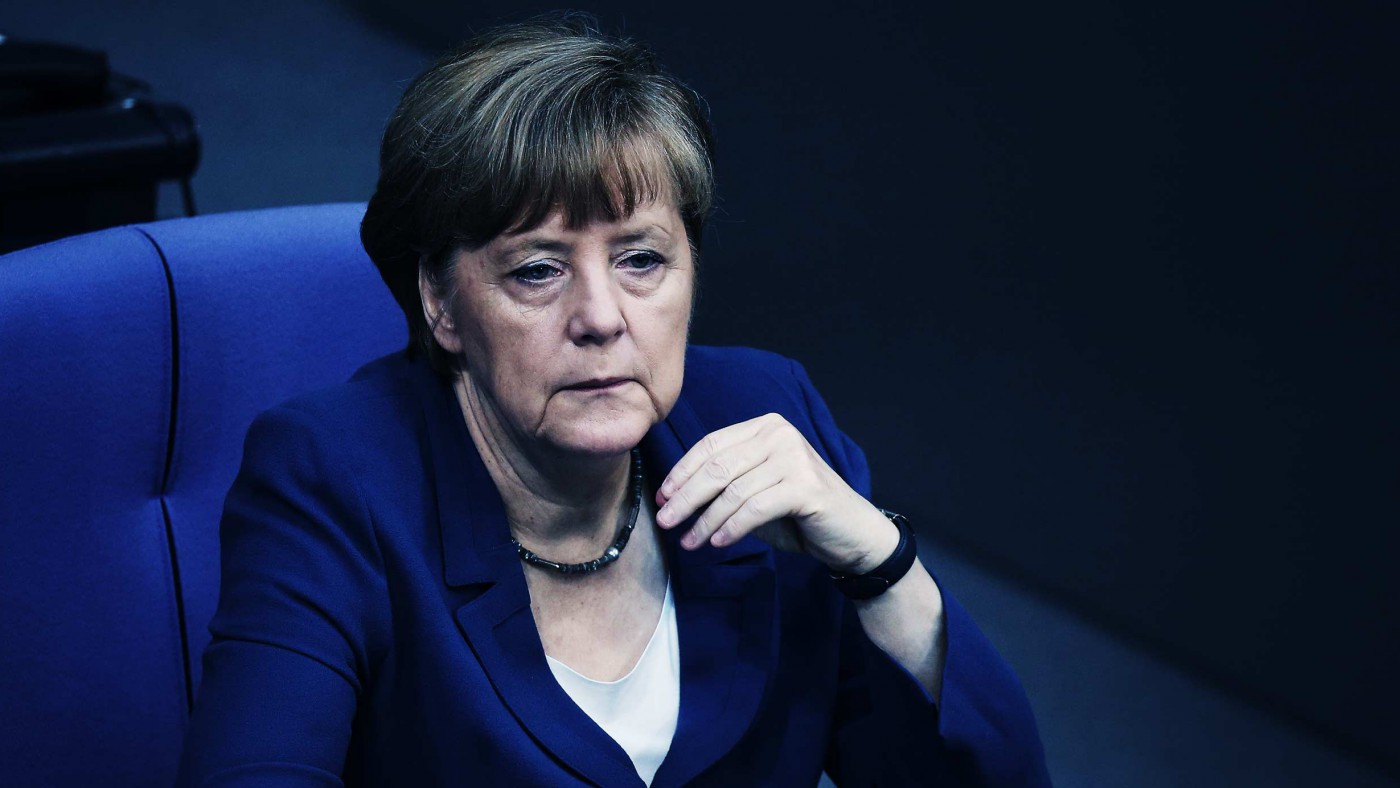It has long been a contention of Euro sophisticates that Germany’s Chancellor Angela Merkel is the bee’s knees and the cat’s pyjamas. Diplomats coo over her pronouncements. In Brussels she is regarded as the Queen of Europe and whispers about what she really thinks are traded like precious pearls of wisdom.
While I can certainly admire her electoral dexterity and guile, I’m afraid I must dissent from the accepted view, considering the mess that she has made of handling Greece.
More than that, Angela Merkel is a seriously overrated leader and after all those years in power it is extremely difficult to think of anything she has done that explains her exalted reputation. On Greece, she has failed. On the need for European Union reform, she has been all but useless. Her major achievements on the European stage are hard to discern. She has been good at watching Germany win at football, and that is about it.
The FT’s Simon Kuper tackled the theme of European leadership in a terrific column at the weekend, although I disagreed with his ultimate conclusion.
The Eurozone crisis, caused by the creation of the Euro, has its roots in an excess of vision, he says. This is a fashionable theme now. Visions are bad. Big ideas have big bad outcomes. Best to tootle along in the slow lane of history trying to avoid a smash, like Merkel, who saw first hand as a youngster under Communism the harm that can be caused by ideology pursued for its own sake.
Says Kuper: “Vision is particularly dangerous at confusing emotional moments such as the fall of the Berlin Wall. The west’s next great confusing emotional moment, the attacks of 9/11, produced blunders including the Iraq war, limitless spying and Guantánamo. Quite likely the frantic weeks after Lehman Brothers’ collapse in 2008 spawned the next generation’s headaches. Much better when possible to wait out crises, as Angela Merkel tries to do. Today’s politicians take a lot of stick, but at least they don’t have any vision.”
He makes a good point. An excess of self-belief – for example, belief in the supposed superiority of economic management and financial innovation in the 2000s – bred arrogance and caused a disaster in 2008. And many of us who were strongly pro-intervention in Iraq in 2003 were gripped at the time by a vision that now looks dotty, or misguided, considering the outcome that resulted.
But surely there is not a straightforward choice when it comes to good leadership? It must be possible, and some have managed it, for leaders to occupy a middle-ground, in which they do not hare off in pursuit of crazed schemes but do try to get important things done, applying their principles to generate practical solutions.
Merkel, seems serially incapable of doing that. She waits out crises, as Kuper says, until, in the case of Greece, pensioners are queuing at banks and hospitals are running out of drugs. If a political set-up such as the Eurozone cannot deliver on such basics, and produces perverse outcomes, the job of a decent leader is to either fix the political set-up to improve matters or get off the stage.
Der Spiegel carried a terrific profile of the German leader last week by Peter Müller and René Pfister, which went some way to explaining why she leads in the way she does. What matters to Merkel, it seems, is that no-one blames Merkel.
The crisis of 2010 gave her unprecedented potential power, and she responded with a policy of “pedagogical imperialism”, demanding budget discipline, labour market reforms and privatisation.
“It worked in Spain, Portugal and Ireland, but in Greece, the conditions imposed by creditors were not seen as necessary medicine but as a poison that was destroying society. Merkel saw what was happening, but she didn’t have the courage to face the consequences. And there were alternatives. She could have offered Greece a safe and supported path out of the euro zone. That is the course of action that Finance Minister Wolfgang Schäuble has supported internally for years. She could also have offered Greece a debt haircut. Had she done so at the right moment, she could at least have prevented the radicalization of Greek politics. None of these options would have been free of risk. They would have required courage and money, and they would have opened up Merkel to attack. And that is something she didn’t want.”
Indeed. The next time someone extolls her virtues as the supposed Queen of Europe, try asking them to list her achievements.


